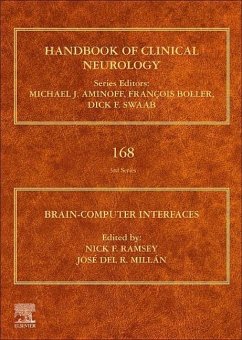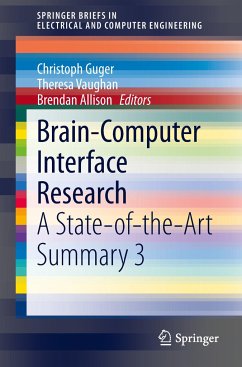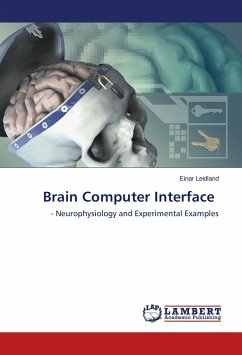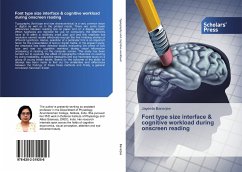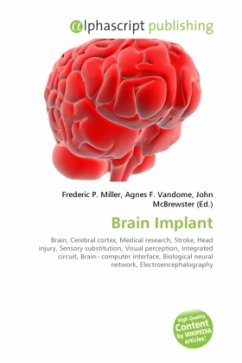
Brain-Computer Interface Research
A State-of-the-Art Summary 6
Herausgegeben: Guger, Christoph; Allison, Brendan; Lebedev, Mikhail

PAYBACK Punkte
21 °P sammeln!
This book presents compact and informative descriptions of the most promising new projects in brain-computer interface (BCI) research. As in earlier volumes in this series, the contributions come from many of the best-known groups in BCI research. Each of these chapters provides an overview of a project that was nominated for the most prestigious award in the BCI community: the Annual BCI Research Award. The book also contains an introduction and discussion with a review of major trends reflected in the awards. This volume also introduces a new type of contribution, namely a chapter"Trends in ...
This book presents compact and informative descriptions of the most promising new projects in brain-computer interface (BCI) research. As in earlier volumes in this series, the contributions come from many of the best-known groups in BCI research. Each of these chapters provides an overview of a project that was nominated for the most prestigious award in the BCI community: the Annual BCI Research Award. The book also contains an introduction and discussion with a review of major trends reflected in the awards. This volume also introduces a new type of contribution, namely a chapter"Trends in BCI Research" that summarizes a top trend in the BCI research community. This year's "Trends in BCI Research" addresses BCI technology to help patients with disorders of consciousness (DOC) and related conditions, including new work that goes beyond communication to diagnosis and even prediction.




